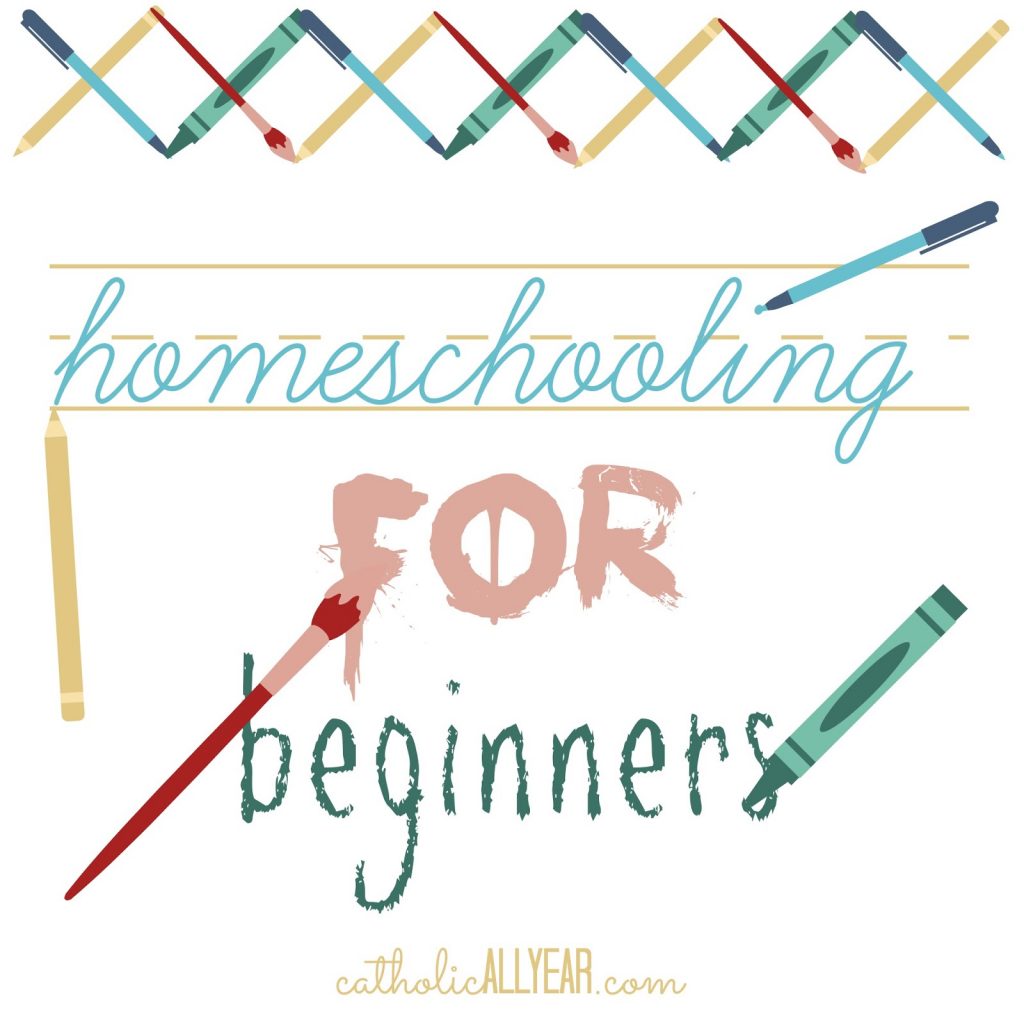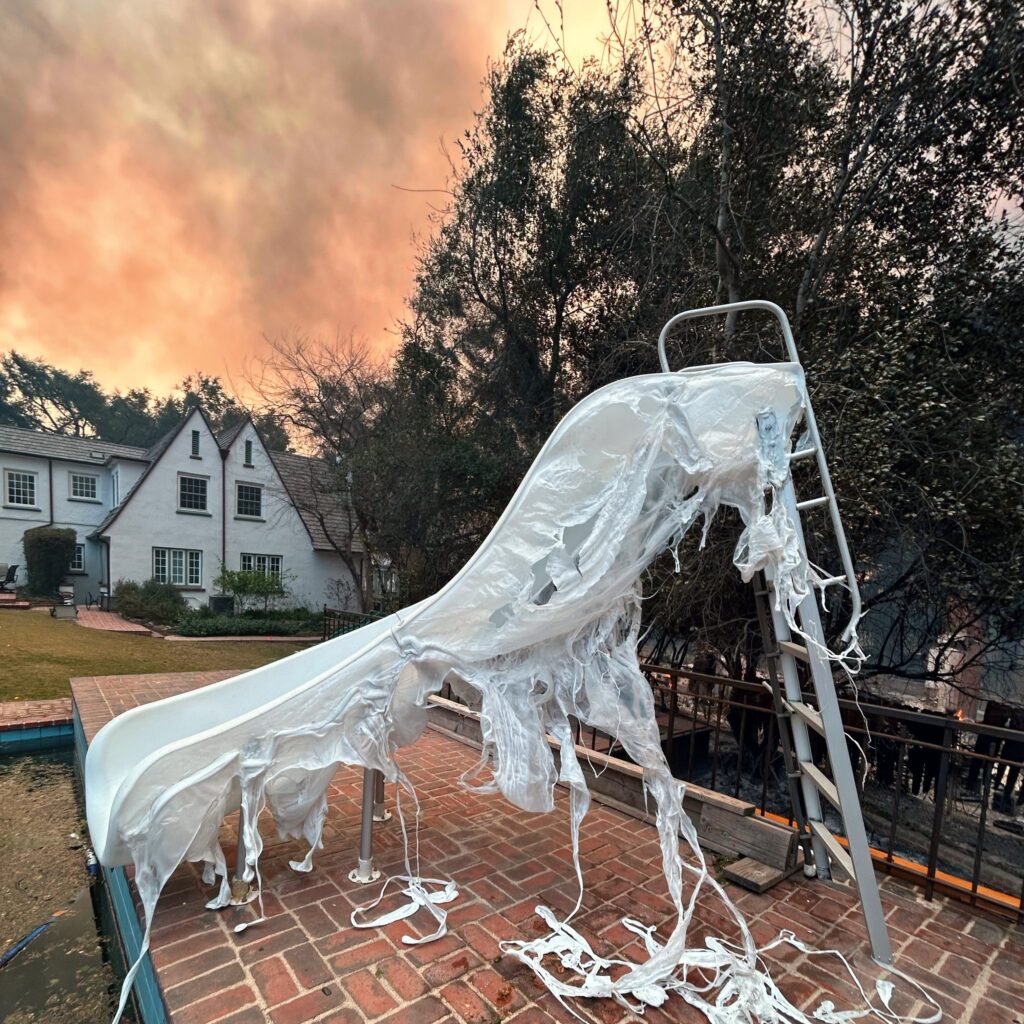Today’s question is all about some ways to get started.
The Question:
Hello Kendra!
First of all (and I’m sure you get this all the time!), THANK YOU for blogging. Thank you for posting truths of the faith and for sharing your family with us. Your advice is invaluable, and I appreciate that I can “get advice” from you on parenting and sharing the faith with my kids when I can’t get it elsewhere.
Also, I ardently hope you are feeling better soon! Morning sickness is so tough and you are in my prayers.
Now to my questions. 🙂 We want to homeschool. (My background sounds a lot like yours, so this is all new to me.) I have a five year old son, and two daughters, two and a half and six months. I’m doing some phonics work with Joe and other preschool-type activities; he’s mildly interested, but not super interested. I’ll be starting kindergarten in the fall, I think. I notice you use Mother of Divine Grace – do you have advice for me starting out with this? (I’ve researched and it’s the way I want to go.) Any other thoughts to starting to homeschool with other littles around?
More specifically: Joe enjoys the activities we do, but often gives up quickly. If he doesn’t know, he says, “You tell me.” If I ask him if he wants to do some schoolwork, he will say “no” but if I just start doing an activity with him he will usually comply alright. Does this mean he’s just not ready yet, or is there some way I can help him try a little harder without giving up so quickly?
Thank you!! You are wonderful, and your sweet family is in my prayers.
Blessings,
Kate
The Answer:
Kate,
Thanks so much. Yes, I am feeling MUCH better and catching up on the mailbag!
That all sounds totally normal to me.
I really think the most important thing I did in the early years was be consistent about a time we were “doing school” but to keep that time really, really short. Like 30-45 minutes, two or three days a week. Then, during that time, we. are. doing. school. So, there’s really no use complaining, it’s not going to do any good. (And we know what God does to complainers.) And keeping each subject REALLY short, like 3-5 minutes for most things, maybe 10 minutes for reading/phonics doesn’t really allow time for kids to get restless.
I have found what worked best in our home when my oldest was starting homeschool, was to schedule school time when the baby was taking a morning nap. I would set myself up at the dining room table with him, with all the supplies we needed and everything all ready to go. If the toddler wanted to join us, that was fine. I had a stash of special “school stuff” that she was allowed to do during school time at the table with us, if she could do it without being disruptive. It was things like coloring or sticker books, mostly. Or, she could play quietly in the playroom. But *I* need to be AT THE TABLE at all times during school time. If I ever tried to give him an assignment, then go finish up the dishes, it was always a disaster.
So, set school time, keep it short, minimize distractions, be present.
Then, we just always did what was included on the Mother of Divine Grace syllabus. There was never a question of whether we felt like doing it or not. During school time, we do our schoolwork. But really, for us, the only times I got pushback from him, were the times I tried to give him an assignment and leave. My kids have all done really well with me working with them one-on-one. Of course, the more kids you have in school, the less that’s possible (more on that on Friday), but at first, it IS possible, and it always had a very high rate of success for us.
My focus throughout the elementary years, but especially, especially before third grade, is to:
- foster a love of learning
- instill personal responsibility and good study habits
- get them reading (at the child’s own pace, sometime between four and eight) and doing arithmetic
In that order of importance.
Once they can read, they can do school work much more independently, which is GREAT. But really, after that, learning specific information is a secondary goal. If they love learning, and can read, and have access to books or the library or the internet, they can learn anything they’d like the whole rest of their lives.
So, I follow the Mother of Divine grace syllabus, because for my kids it’s been an appropriate amount of work, and I like the material and the methods. I like the memorization, and the retelling of stories, and the little discussions about the Old Testament and famous paintings. But I don’t think my kids learning any of the specific material is as important as my kids learning to finish what they start, or to keep trying if something is hard, or sometimes, to set something aside for a bit and try again another time. All of those are good life skills to have.
Just know going in to it, that if you are anything like me, your expectations with your first will be way too high. You will mellow with each subsequent kid, and you’ll learn that the process is more important than the results. But that doesn’t mean there don’t have to be some results. It’s a balancing act. But, somehow, it all works out.
Cheers,
Kendra
One more thing . . . as for what I do BEFORE Kindergarten? The answer is absolutely nothing structured. In fact, I’m pretty strongly against it. There is plenty of time for structured learning, and I really don’t think it’s necessary or helpful in the preschool years. Here’s more on that:
Quit Worrying About Preschool. Seriously, Stop It.
And here are a couple of other related posts:
Why I Homeschool Like That
Homeschooling: One-Room Schoolhouse Meets Three-Ring Circus
My Top Ten Books for Teaching Kids
Disclaimer: I am not a theologian, nor am I an official spokesperson for the Catholic Church. (You’re thinking of this guy.)
If you read anything on this blog that is contrary to Church teaching, please consider it my error (and let me know!). I’m not a doctor or an expert on anything in particular. I’m just one person with a lot of experience parenting little kids and a desire to share my joy in marriage, mothering, and my faith.
If you’ve got a question, please send it along to helpdesk@catholicallyear.com. Please let me know if you prefer that I change your name if I use your question on the blog.
P.S. Speaking of homeschooling . . . You may have seen news of the tragedy involving a Wisconsin homeschooling family. The husband was killed when their car was hit by a deer that had been involved in an accident with a different car, while driving his wife to the hospital to deliver their eighth child. The wife and the other seven children who were also in the car were unharmed. Since a couple of friends of the family shared their GoFundMe page with me, the story has been picked up by national and international news outlets and there has been an amazingly generous outpouring of support for the family. I feel like this is one of those causes that really brings our community together. Perhaps you can spare a few dollars and be a part of something big to help this family. Get the details and donate here.





